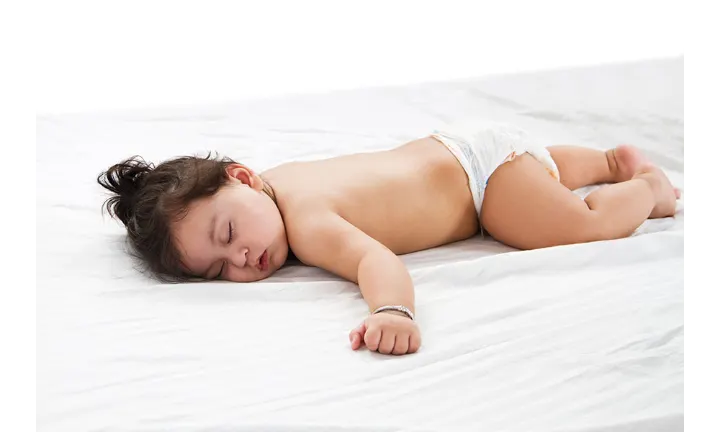What to Do When Your Baby Has Eczema
Is your baby’s skin covered with red patches? It’s likely that he is dealing with eczema. Being a parent, this sight might make you worry. Well, let us put your mind at ease by telling you that eczema in kids is quite common and it often goes away with time. Understanding the condition better might keep you ahead of the situation. So, keep on reading to know what baby eczema is, what’s causing it, and how you can treat it.
What Is Baby Eczema?
Though it can occur at any age, eczema is a skin condition that's common in children — about 10 percent of children get it. It’s not contagious.
Eczema usually appears after your infant turns about 1 month old. Most children grow out of it between the ages of 2 and 3.
It’s not always known why the condition affects some people and not others; however, your infant might be more susceptible to eczema if certain conditions run in your family. These may include hay fever, asthma, food allergies, or environmental allergies.
Interestingly, about half of the children who had eczema develop hay fever or asthma in adulthood.
What Causes Eczema in Babies?
It's unclear why some people get eczema and others don't, though genetics plays a role. Allergies are also related to the condition.
There are also environmental irritants that affect some people more than others. When the skin comes into contact with an irritating substance it becomes red and inflamed.
Here are some irritants that could cause eczema in some babies:
Contact with certain soaps, detergents, and perfumes
Having hot, sweaty skin
Exposure to dry winter air
Contact with rough fabrics, like wool
Contact with dust mites.
Identifying Eczema on Your Baby’s Face and Body
With eczema, your baby’s skin will look dry and scaly or bumpy with red patches. The condition usually starts on the face, especially on the cheeks, forehead, or scalp.
In many cases, the rash goes away on the face before spreading to other areas, such as the bends of the elbows and the area behind the knees. The patches caused by eczema can be mild and small, but they can also be extremely itchy, which can make your baby irritable. If this is the case with your little one, speak to your healthcare provider.
Keep in mind that eczema on your baby’s head might look a little like cradle cap, which is another skin condition that can affect some babies. Your healthcare provider will be able to diagnose the condition.
Two Types of Eczema Your Baby Could Have: Atopic Dermatitis or Contact Dermatitis
Atopic dermatitis is the type of eczema that runs in the family. Food allergies, hay fever, and environmental allergies may be related to flare-ups of atopic dermatitis.
Contact dermatitis occurs when an irritant or allergen comes into contact with your baby’s skin, causing an allergic reaction in the form of a rash — in other words, eczema.
When To Visit The Doctor
It’s a good idea to see your provider if you think your little one might have eczema —that way your healthcare provide can diagnose it and recommend treatment if it’s needed.
If your baby’s eczema is severe — if it looks purple, crusty, or weepy, or has blisters — your provider might prescribe an over the counter or prescription cream or ointment.
If your baby has only mild eczema, your provider might recommend no treatment at all and recommend waiting to see if it clears on its own.
How to Help Prevent Your Baby’s Eczema From Recurring
Always follow your healthcare provider’s advice on treating your baby's eczema. Your provider may suggest taking the following steps to help prevent eczema from recurring or getting worse:
Bathe your baby no more than three times per week.
Keep bath time to no more than 15 minutes.
Use only mild, unscented soaps.
After bath time, moisturize your baby’s skin with a fragrance-free cream or an ointment such as petroleum jelly or one prescribed by your healthcare provider.
Moisturize your baby’s skin at least twice a day (get more tips on baby skincare). Diaper changes can be a good time to do this.
Launder your baby’s clothes in mild, unscented detergent.
Dress him in soft clothing. Avoid wool or any rough woven fabrics.
To help protect your little one’s skin, keep his nails clipped short so that he can’t scratch himself. You could also slip cotton mittens on his hands before bedtime to help prevent him from scratching.
FREQUENTLY ASKED QUESTIONS
FREQUENTLY ASKED QUESTIONS
Soothe your baby’s eczema by
-
Bathing her no more than three times per week, using mild, unscented soaps
-
Moisturizing your baby’s skin after bath time with a fragrance-free cream or ointment such as petroleum jelly or one prescribed by your provider
-
Dressing her in soft clothing, avoiding wool or any rough woven fabrics.
All-In-All
It can surely be a little worrisome to look at your baby dealing with eczema. However, all you need to know is that in no time, with the proper treatment provided by the doctor along with effective at-home remedies, your little one’s skin will improve. Rest from your end, all you need to do is load him with lots of love and care.


